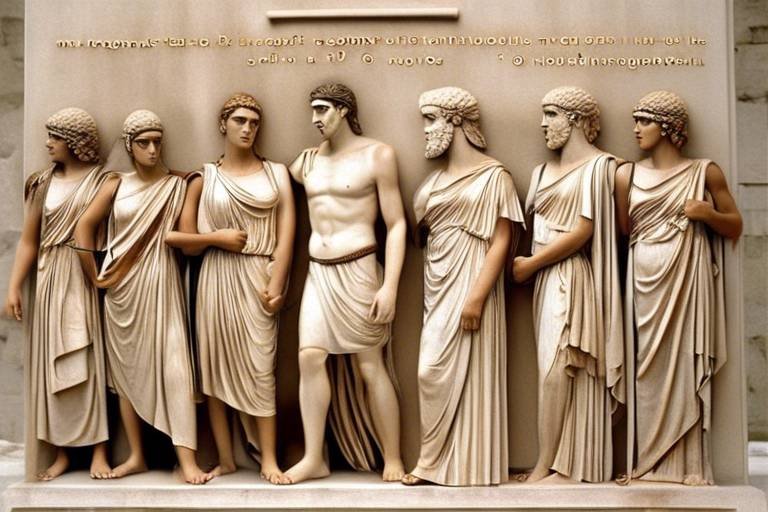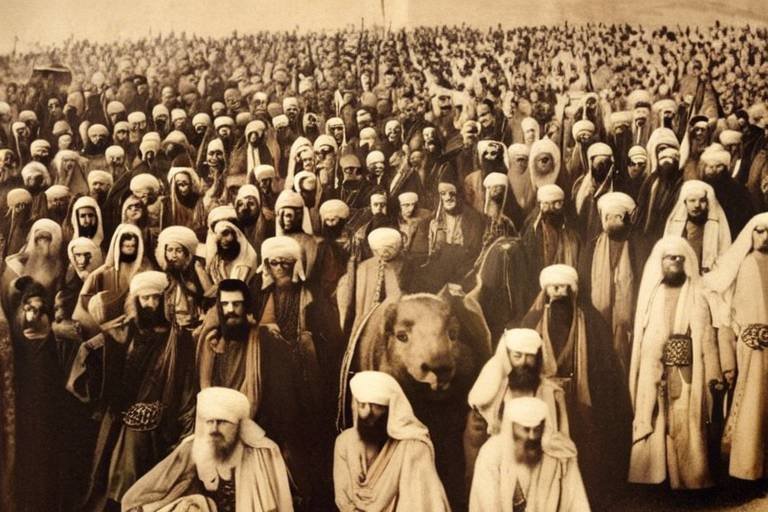The Influence of Ancient Greece on Modern Culture
Ancient Greece, with its rich history and profound contributions, continues to be a wellspring of inspiration for modern society. The legacy of this ancient civilization permeates various aspects of contemporary culture, leaving an indelible mark on the world as we know it today.
From the cradle of democracy to the birthplace of philosophy, art, and literature, ancient Greece's influence reverberates through time, shaping our governance systems, ethical frameworks, artistic expressions, and intellectual pursuits.
The enduring impact of Greek civilization can be seen in the democratic principles that underpin modern governance structures. The democratic ideals championed in ancient Athens have laid the foundation for democratic societies worldwide, influencing how we govern ourselves and uphold the rights of citizens.
Moreover, the philosophical insights of iconic figures like Socrates, Plato, and Aristotle continue to inform contemporary discourse on ethics and metaphysics. Their probing inquiries into morality, logic, and the nature of reality have left an indelible mark on how we grapple with complex ethical dilemmas and philosophical conundrums.
When it comes to art and architecture, the timeless beauty and elegance of Greek design still captivate the imagination of artists and architects today. The iconic columns of Greek temples, the intricate sculptures depicting mythological tales, and the enduring appeal of classical motifs all bear witness to the lasting influence of ancient Greek aesthetics.
Literature and drama also owe a debt to ancient Greece, with epic poems like the Iliad and the Odyssey standing as timeless classics that continue to inspire storytellers and playwrights. The development of theater in ancient Greece laid the groundwork for dramatic conventions that shape our entertainment industry to this day.
The Olympic Games, originating in ancient Greece, symbolize the enduring spirit of competition, athleticism, and sportsmanship. The ancient Greeks' celebration of physical prowess and dedication to fair play still resonate in the modern iteration of the Olympics, showcasing the universal appeal of sporting excellence.
Furthermore, the Greek language has left an indelible mark on modern vocabulary and academic discourse. Scientific terminology, philosophical concepts, and educational practices all bear the imprint of ancient Greek language and scholarship, underscoring the enduring legacy of Greek education.
Mythology and symbolism from ancient Greece continue to captivate audiences with their rich tapestry of gods, heroes, and symbolic motifs. These timeless tales have found new life in contemporary literature, art, and popular media, weaving a thread of cultural continuity that spans millennia.
Lastly, the ideals of beauty, balance, and proportion espoused by ancient Greek aesthetics shape our contemporary notions of attractiveness and design. The pursuit of aesthetic perfection, as exemplified by Greek sculptures and architectural marvels, continues to influence fashion trends and beauty standards in the modern world.

Democracy and Governance
Democracy and Governance in ancient Greece were revolutionary concepts that laid the groundwork for modern political systems. The birthplace of democracy, Athens, introduced a system where citizens had a say in decision-making through direct participation in assemblies. This form of governance, although limited to male citizens, marked a significant shift from autocratic rule to a more inclusive and participatory model.
A key element of ancient Greek democracy was the concept of isonomia, meaning equality before the law. This principle influenced the development of legal systems and the idea that all individuals should be treated fairly and justly. The legacy of Greek governance can be seen in modern democracies worldwide, where the rule of law, individual rights, and the separation of powers are fundamental principles.
Moreover, the idea of citizenship in ancient Greece extended beyond mere residence to active engagement in civic life. Citizens were expected to contribute to the welfare of the polis, or city-state, through military service, jury duty, and political involvement. This sense of civic duty and responsibility continues to shape notions of citizenship and civic engagement in contemporary societies.

Philosophy and Ethics
Exploring how the rich history, philosophy, art, and architecture of ancient Greece continue to shape and inspire modern society, from democracy and literature to sports and aesthetics.
Delving into the enduring impact of Greek philosophers like Socrates, Plato, and Aristotle on contemporary ethical and philosophical discourse, shaping concepts of morality, logic, and metaphysics.

Art and Architecture
The art and architecture of ancient Greece are renowned for their timeless beauty and influence on modern design. Greek architects and artists created masterpieces that continue to inspire and awe people around the world. The iconic columns and temples, such as the Parthenon in Athens, stand as testaments to the architectural prowess of the ancient Greeks. These structures, with their harmonious proportions and exquisite details, have served as models for architects and designers throughout history.
Greek sculptures, characterized by their lifelike forms and attention to anatomical detail, have set the standard for artistic realism. The famous statue of Zeus at Olympia and the Venus de Milo are prime examples of the sculptural mastery of ancient Greek artists. Their work has influenced sculptors for centuries, with many artists seeking to replicate the grace and beauty of these ancient creations.
Ancient Greek pottery is another artistic legacy that has left a lasting impact on the art world. The intricate designs and storytelling scenes depicted on Greek vases and vessels showcase the artistic skill and creativity of the ancient potters. These vessels not only served practical purposes but also served as canvases for artistic expression, influencing pottery traditions in various cultures.
Furthermore, the revival of classical motifs in contemporary art demonstrates the enduring relevance of Greek art and aesthetics. Artists continue to draw inspiration from Greek mythology, history, and artistic techniques, infusing their work with elements of the ancient world. The legacy of Greek art and architecture lives on in the modern world, enriching our cultural landscape with its timeless beauty and profound influence.

Literature and Drama
The realm of literature and drama in ancient Greece is a treasure trove of timeless masterpieces that continue to captivate audiences worldwide. From epic poems to tragic plays, Greek literary works have left an indelible mark on the fabric of storytelling and theatrical arts. The epic poems The Iliad and The Odyssey, attributed to the legendary poet Homer, stand as pillars of Western literature, chronicling the heroic exploits of gods and mortals in a world of epic battles and profound quests.
Moreover, the development of theater in ancient Greece, particularly in Athens, gave rise to a theatrical tradition that has endured through the ages. The works of renowned playwrights such as Aeschylus, Sophocles, and Euripides introduced audiences to the power of tragedy and comedy, exploring complex themes of fate, morality, and human nature.
Through the innovative use of masks, choruses, and dramatic conventions, Greek playwrights crafted narratives that delved into the depths of human experience, inviting audiences to reflect on the complexities of life and society. The enduring legacy of Greek drama is evident in the continued performance of classical works and the adaptation of ancient themes in contemporary theater.

Olympic Games and Sports
When delving into the origins of the Olympic Games, one cannot overlook the profound impact ancient Greece has had on the modern concept of sports and athletic competition. The Olympic Games, which originated in Olympia, Greece, around 776 BC, were a celebration of physical prowess, skill, and sportsmanship. These ancient games were not just about winning; they embodied the spirit of fair play, camaraderie, and the pursuit of excellence.
Ancient Greek athletes competed in a variety of disciplines, including running, wrestling, boxing, and chariot racing. The Games were not only a display of athletic ability but also a tribute to the Greek gods, particularly Zeus, the king of the gods. Victors were revered and celebrated, with olive wreaths adorning their heads as a symbol of triumph and honor.
Over time, the Olympic Games evolved into a global phenomenon, transcending borders and cultures to become the pinnacle of athletic achievement on an international stage. The modern Olympics, revived in 1896, continue to embody the principles of unity, friendship, and respect, echoing the ethos of their ancient predecessors.
The Olympic flame, a symbol of the ancient Greek tradition, is lit in Olympia before each Games and travels to the host city, carrying with it the spirit of competition and the legacy of the past. Athletes from around the world gather to compete not only for personal glory but also to honor the traditions and values that have been passed down through generations.
The Olympic Games serve as a testament to the enduring legacy of ancient Greece, showcasing how the principles of sportsmanship, fair play, and excellence established thousands of years ago continue to inspire and unite people from diverse backgrounds and cultures around the globe.
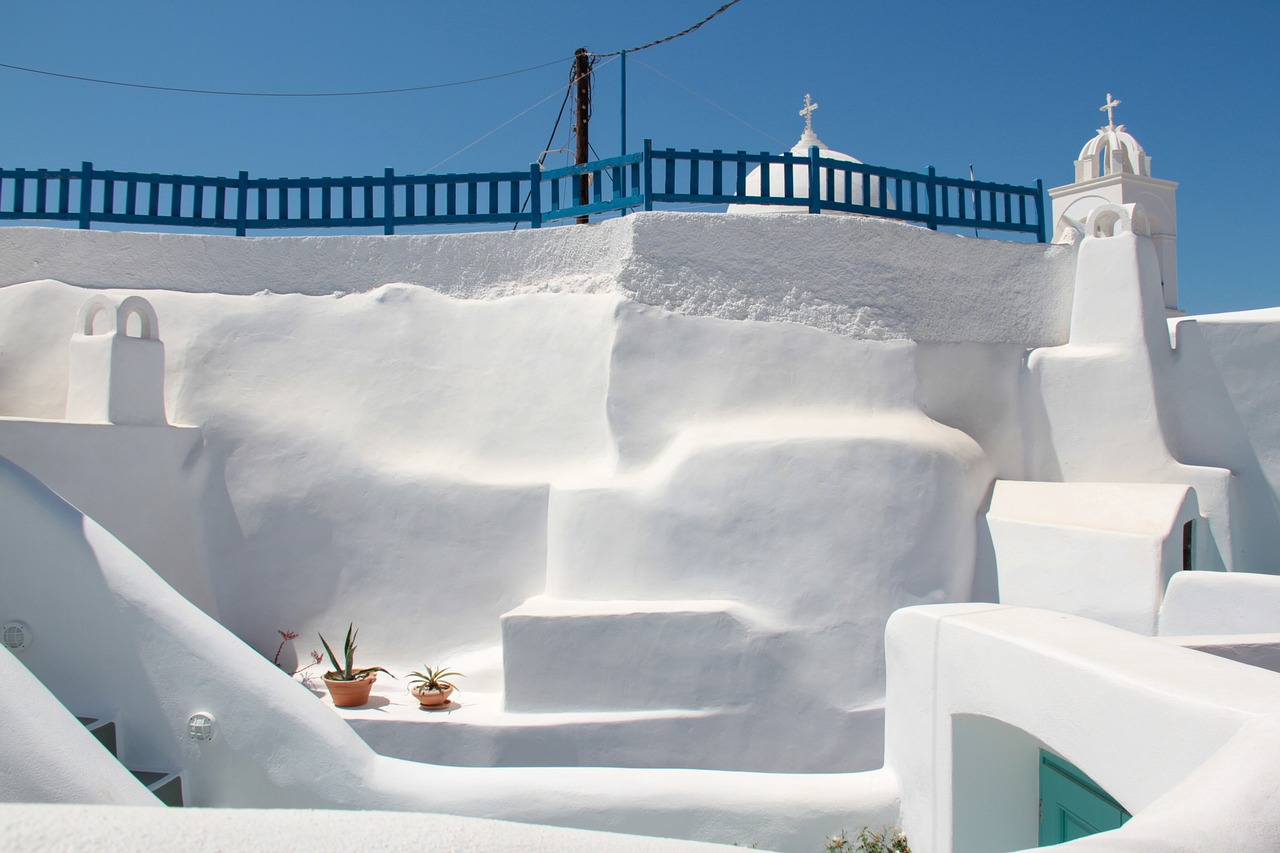
Language and Education
The influence of ancient Greece on modern language and education is profound, with the Greek language serving as a cornerstone for many academic disciplines and scientific fields. Greek vocabulary has permeated various languages, especially English, through terms derived from Greek roots. For example, words like "biology," "philosophy," and "geography" all have Greek origins, showcasing the lasting impact of ancient Greek language on modern terminology.
Ancient Greek education methods, particularly the emphasis on critical thinking, debate, and the pursuit of knowledge, continue to shape educational practices today. The Socratic method, named after the philosopher Socrates, remains a fundamental approach in teaching, encouraging students to engage in dialogue, question assumptions, and seek deeper understanding. This pedagogical technique has influenced modern educational philosophies, emphasizing active learning and intellectual inquiry.
Furthermore, ancient Greek texts, such as the works of Homer, Plato, and Aristotle, are foundational in literature and academic curricula worldwide. These timeless writings explore complex themes of ethics, politics, and metaphysics, providing valuable insights into human nature and societal structures. The enduring relevance of Greek literature in educational settings underscores the enduring legacy of ancient Greece in shaping intellectual discourse and literary traditions.
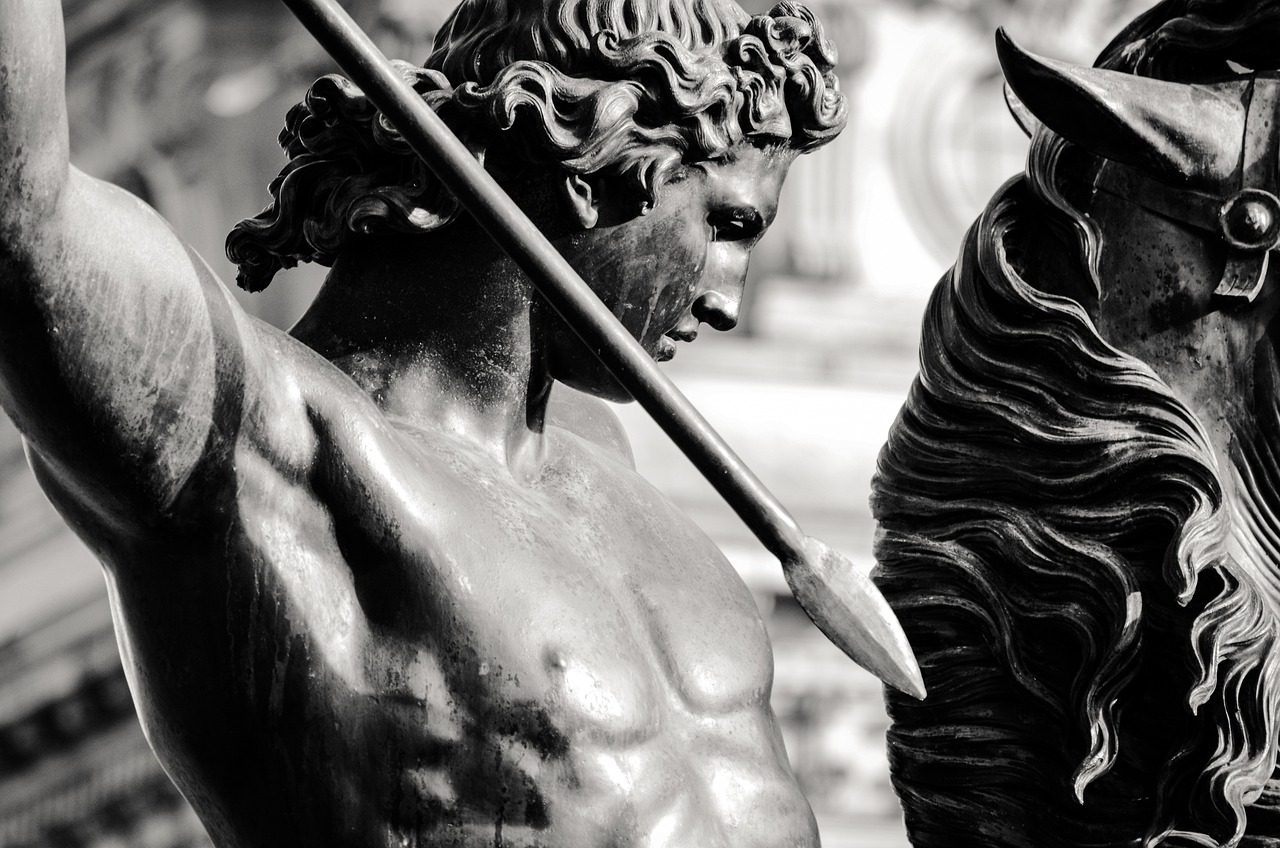
Mythology and Symbolism
Mythology and symbolism hold a significant place in ancient Greek culture, with stories of gods, goddesses, and heroes shaping not only the past but also contemporary society. The enduring appeal of Greek mythology lies in its ability to transcend time, offering timeless lessons and insights into the human experience. These myths are not merely tales of the past; they serve as symbolic motifs that continue to influence literature, art, and popular media today.
From the mighty Zeus, ruler of the gods, to the courageous Hercules, Greek mythology is filled with iconic figures that embody various virtues and vices. These characters serve as archetypes, representing universal themes such as love, betrayal, heroism, and tragedy. The symbolism embedded in these myths adds depth and meaning to storytelling, allowing audiences to connect with profound truths about the human condition.
Moreover, the rich tapestry of Greek mythology offers a treasure trove of symbols and allegories that artists and writers draw upon to convey complex ideas and emotions. The labyrinthine journeys of heroes like Odysseus symbolize the quest for self-discovery, while the tragic fate of Icarus warns against hubris and overreach. These timeless themes resonate with audiences across cultures and generations, illustrating the enduring power of myth and symbolism.
Furthermore, the influence of Greek mythology extends beyond literature and art, permeating popular culture in various forms. From blockbuster movies to bestselling novels, references to ancient Greek myths abound, showcasing the enduring fascination with these timeless tales. The symbolism found in these myths adds layers of meaning and depth to contemporary works, enriching storytelling and engaging audiences on a deeper level.
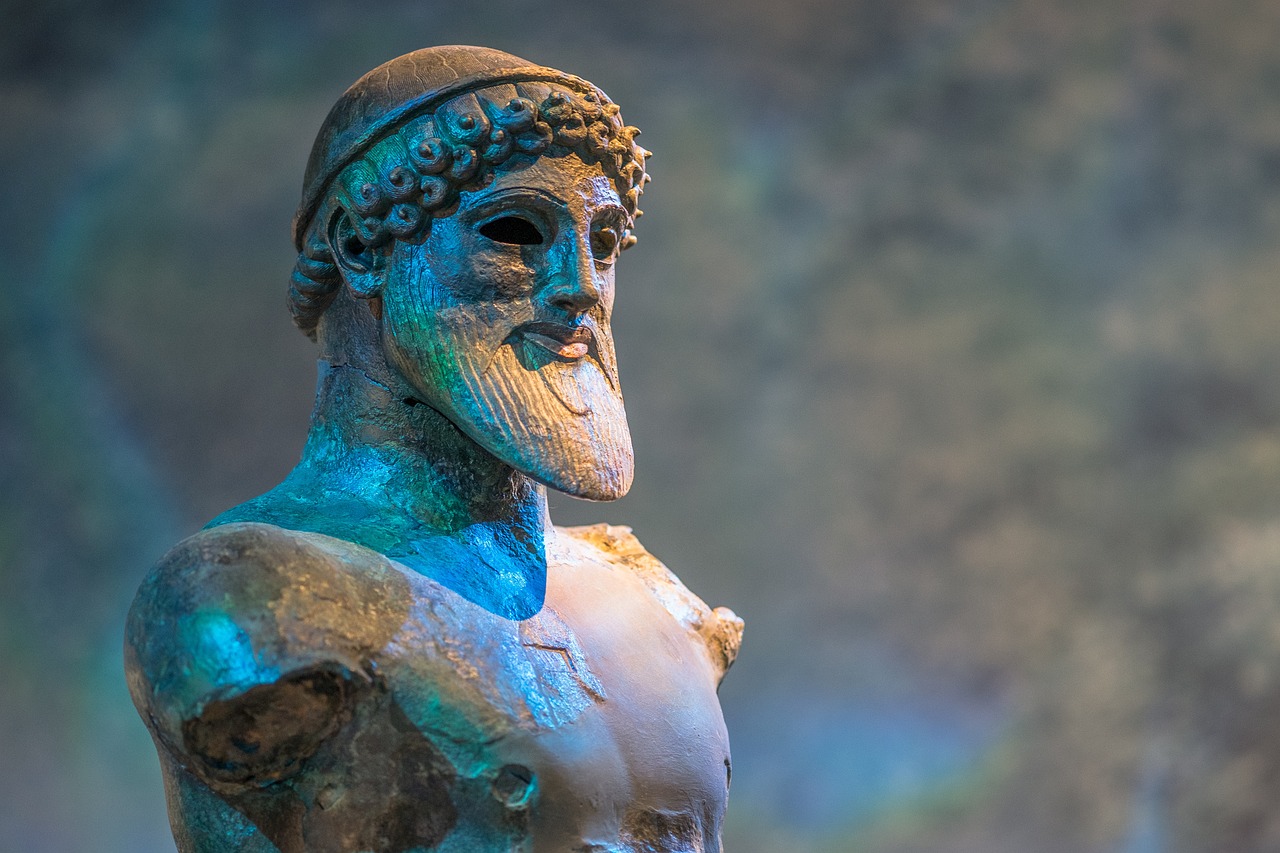
Aesthetics and Beauty Standards
When it comes to aesthetics and beauty standards, ancient Greece has left an indelible mark on modern culture. The Greek ideals of beauty, balance, and proportion have transcended time, influencing contemporary perceptions of attractiveness and design. The concept of kalos kagathos, which signifies the unity of physical beauty and moral goodness, continues to shape our understanding of beauty standards.
Ancient Greek sculptures, such as the iconic Venus de Milo and Discobolus, exemplify the emphasis on idealized human forms and harmonious proportions. These artistic representations have not only inspired generations of artists but also influenced modern fashion and body image ideals.
Moreover, the architectural principles of ancient Greece, with their focus on symmetry and elegance, have influenced contemporary design and urban planning. The enduring popularity of columns and arches in architecture reflects the timeless appeal of Greek aesthetics.
From the Parthenon to the Acropolis, the grandeur and beauty of Greek architecture continue to captivate audiences worldwide. The meticulous attention to detail and the pursuit of perfection in design are values that resonate with modern architects and designers.
Furthermore, the Greek emphasis on physical fitness and athleticism as integral components of beauty has shaped modern fitness trends and beauty standards. The concept of a sound mind in a healthy body, embodied in the Olympic ideal, underscores the interconnectedness of physical well-being and aesthetic appeal.
In conclusion, the influence of ancient Greek aesthetics and beauty standards on modern culture is undeniable. From art and architecture to fashion and fitness, the legacy of Greek ideals continues to inspire and guide our perceptions of beauty and design.
Frequently Asked Questions
- What is the significance of ancient Greek democracy on modern governance?
Ancient Greek democracy laid the foundation for modern democratic societies by introducing the concept of citizen participation in decision-making processes and influencing governmental structures worldwide. The principles of equality, freedom of speech, and the rule of law from ancient Greece continue to shape modern governance.
- How did Greek philosophy influence contemporary ethical and philosophical discourse?
Greek philosophers such as Socrates, Plato, and Aristotle made lasting contributions to ethical and philosophical thought, shaping concepts of morality, logic, and metaphysics that are still relevant today. Their ideas have influenced fields such as ethics, politics, and science, providing a framework for understanding the world.
- What is the enduring impact of Greek art and architecture on modern design?
Greek art and architecture have had a profound influence on modern design, with iconic elements like columns, temples, sculptures, and pottery being incorporated into contemporary aesthetics. The revival of classical motifs in art reflects the timeless beauty and balance of Greek artistic principles.
- How did Greek literature and drama shape storytelling techniques in modern times?
Greek literature and drama, including epic poems like the Iliad and the Odyssey, have left a lasting legacy on storytelling techniques. The development of theater in ancient Greece and the exploration of complex themes in literature have influenced narrative structures and character development in contemporary works.
- What is the connection between the ancient Olympic Games and modern sports culture?
The ancient Olympic Games in Greece served as the foundation for the modern international sporting event, emphasizing the spirit of competition, athleticism, and sportsmanship. The values instilled in the ancient Games continue to inspire athletes and spectators worldwide.
- How has the Greek language influenced modern vocabulary and academia?
The Greek language has contributed numerous words to modern vocabulary, especially in academia and scientific terminology. The influence of ancient Greek education methods and texts can be seen in disciplines such as medicine, philosophy, and mathematics.
- Why does Greek mythology and symbolism remain popular in contemporary culture?
Greek mythology and symbolism continue to captivate audiences in contemporary culture due to their rich narratives, iconic gods and heroes, and symbolic motifs. These timeless tales have inspired art, literature, and popular media, resonating with audiences of all ages.
- How do ancient Greek ideals of beauty and aesthetics influence modern standards?
Ancient Greek ideals of beauty, balance, and proportion have shaped contemporary aesthetics, fashion, and beauty standards. The emphasis on harmony and symmetry in Greek art and architecture continues to influence perceptions of attractiveness and design in the modern world.

